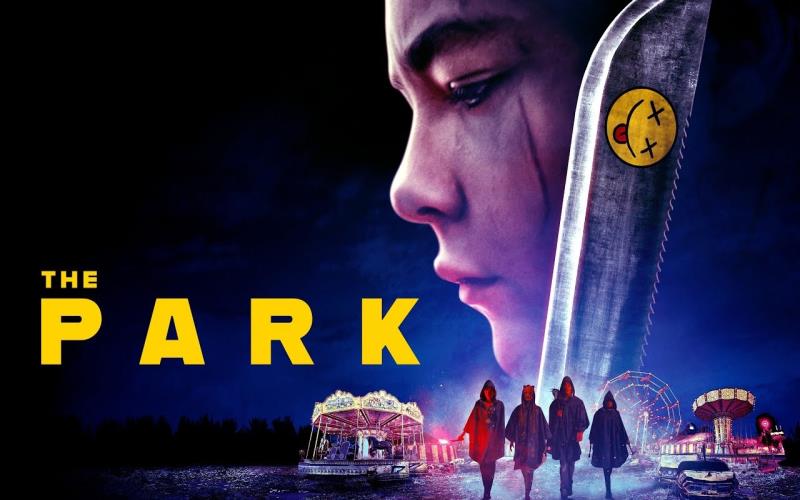Park Movie Review: A Thought-Provoking Journey Through Relationships, Choices, and Chance Encounters
Introduction to the Movie Park
Park is a thought-provoking film that explores the delicate intersections of relationships, personal growth, and emotional resilience. Directed by Kip Williams, this movie delivers a blend of comedy, drama, and reflective moments that captivate audiences with a narrative focused on human connections. Set predominantly in a scenic urban park, the film uses its tranquil environment to contrast the complexities and turbulence of its characters’ lives. The movie invites viewers into the personal journeys of a diverse group of individuals, whose paths cross in unexpected ways within the open space of the park.
With a talented ensemble cast, Park offers profound insights into the emotional struggles and triumphs we all encounter. It effectively merges humor with deeper philosophical undertones, making it both entertaining and meaningful. The nuanced performances and the way the film captures the essence of seemingly small, everyday moments allow it to leave a lasting impression on viewers.
Plot Overview and Thematic Elements
The movie follows intersecting storylines involving various characters, each dealing with personal dilemmas. From couples facing relationship crises to individuals struggling with self-identity, the park serves as a symbolic place where characters pause, reflect, and ultimately change. Among the key characters is Ian, a man dealing with the aftermath of a failed marriage, and Sophie, a young woman grappling with career uncertainties and self-doubt.
The central theme of Park revolves around personal growth and self-acceptance. As the characters engage in conversations or introspective moments while sitting on park benches or walking along the paths, they gradually uncover truths about themselves and each other. The park acts as a haven where they feel free to confront their fears and anxieties, setting the stage for transformative experiences.
The film also examines the unpredictability of relationships, highlighting how chance encounters can alter the course of one’s life. Some characters discover love, while others realize the importance of moving on from toxic connections. Through these vignettes, Park reminds viewers that personal breakthroughs often come when least expected, sometimes in the quiet moments of nature or during random interactions with strangers.
Character Development and Performances
Kip Williams directs with a sharp eye for human behavior, allowing the actors to showcase subtle yet powerful performances. Each character feels authentic, with dialogues that resonate emotionally.
One of the standout performances is by Jason Isaacs, who plays Ian. His portrayal of a man on the verge of emotional collapse but slowly finding redemption is both moving and relatable. Isaacs’ nuanced expressions and body language convey the weight of Ian’s experiences without over-dramatizing them, making his journey compelling.
On the other hand, Rachel McAdams, who plays Sophie, delivers a performance full of charm and vulnerability. Her character’s inner conflict is palpable, as she balances moments of self-doubt with flashes of determination. McAdams captures the essence of someone searching for meaning and fulfillment, providing depth to a role that could have easily become clichéd.
The supporting cast also delivers memorable performances, with each actor contributing to the film’s intricate tapestry of interconnected stories. The chemistry between characters feels natural, enhancing the authenticity of the movie’s portrayal of relationships.
Cinematography and Setting
The cinematography in Park plays a crucial role in conveying the film’s themes. The park itself becomes a character, with its lush greenery, winding paths, and serene ponds providing the perfect backdrop for the unfolding drama. The use of natural lighting and wide-angle shots emphasizes the openness of the space, mirroring the emotional openness the characters experience.
Close-up shots are employed during intimate moments, focusing on the actors’ facial expressions to highlight subtle emotions. The film’s visual style captures both the beauty of nature and the complexities of human emotions, creating a harmonious blend that enhances the storytelling.
The park’s setting serves as a metaphor for life’s unpredictability—just as the paths in the park twist and turn, so do the lives of the characters. This symbolism adds depth to the narrative, encouraging viewers to reflect on their own journeys and relationships.
Music and Sound Design
The soundtrack of Park complements the film’s narrative, featuring a mix of soothing instrumental pieces and poignant songs. The music enhances the emotional impact of key scenes, creating an immersive experience for the audience. The use of ambient sounds, such as birds chirping or leaves rustling, further grounds the film in reality, adding to its contemplative tone.
Music plays a subtle but essential role in transitioning between different storylines, helping to maintain the film’s rhythm and pace. The soundtrack’s gentle melodies reflect the reflective nature of the film, encouraging viewers to engage with the characters’ emotional journeys.
Strengths and Weaknesses
One of the film’s primary strengths is its engaging script and character-driven storytelling. The dialogue feels natural, drawing viewers into the characters’ world and making their struggles and triumphs feel personal. The film’s exploration of everyday experiences allows it to resonate with audiences on a deep level.
However, some viewers might find the pacing slow, particularly in the first half. The film takes its time establishing the characters and their stories, which may test the patience of those expecting a fast-paced narrative. Additionally, while the interconnected stories are compelling, some subplots could have been more developed to provide a stronger emotional payoff.
Audience Reception and Critical Response
Upon release, Park received positive reviews for its thoughtful storytelling and heartfelt performances. Critics praised the film’s ability to balance humor with emotional depth, making it both entertaining and insightful. Many reviewers highlighted the chemistry between the lead actors and the film’s skillful use of setting as key strengths.
Audience reactions were generally favorable, with viewers appreciating the film’s focus on relationships and personal growth. However, some felt that certain plotlines lacked resolution, leaving them wanting more. Despite these minor criticisms, Park has found a dedicated audience among those who enjoy character-driven dramas that offer meaningful insights into life and relationships.
Conclusion: Why You Should Watch Park
In conclusion, Park is a beautifully crafted film that explores the complexities of human relationships with sensitivity and humor. It offers a refreshing take on personal growth, reminding us that transformation often happens in unexpected places and through random encounters. The film’s engaging performances, thoughtful direction, and stunning cinematography make it a must-watch for anyone who enjoys introspective dramas.
If you are looking for a movie that will make you laugh, think, and perhaps shed a tear, Park is an excellent choice. It invites viewers to reflect on their own lives and relationships, offering a cinematic experience that is both entertaining and thought-provoking.


